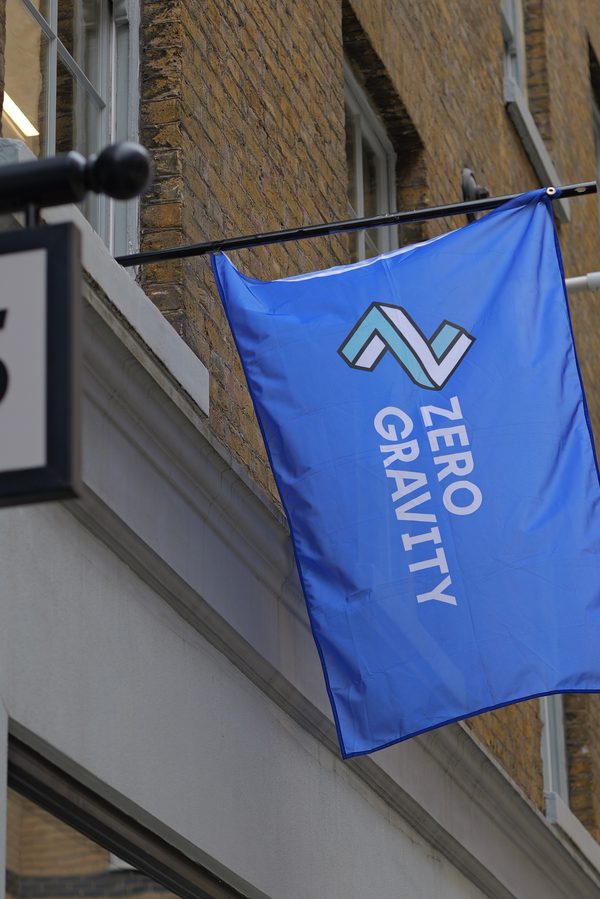
The following article is an excerpt from the 2022 'Gap Zero Report' by Zero Gravity on the 'Network Advantage' - the intangible benefit that comes from being born with a broad professional network.
The story of modern society is one of the rapid growth of networks. Networks dominate every part of our lives: from how we communicate with our friends (e.g. Facebook) to how we travel around cities (e.g. Uber), order takeaway food (e.g. Deliveroo), and finance aspirational purchases (e.g. Klarna).
These network-based products have grown powerful due to the existence of ‘network effects' whereby the value of a product becomes more valuable as more people use it. For instance, the more users sign up to Facebook, the more valuable Facebook becomes as a platform to connect with friends and meet new people. This feedback loop enables networks to grow at breakneck speed and entrench their incumbency against potential rivals.
Network effects are at play not just in our social lives but in our education system too.
Even as the standard of state education has improved, the UK’s private schools have retained their allure, with the number of privately educated students growing by 12% over the past thirty years.
One reason for this could be the value of private education as a network-based product; a means for parents to introduce their children to a broad network of fellow students, parents, and alumni. According to this theory, private school fees don’t just purchase access to a better standard of education, but to a powerful network that can be leveraged throughout school, university, and then into the workplace.
Earnings data appears to lend support to this theory. A recent ONS study has found that only 42% of the gap in earnings between the wealthy and disadvantaged can be explained by differences in educational outcomes. This suggests that other factors - such as network effects - are at play.
It is from this base that we have identified a phenomenon called the ‘Network Advantage’ – the intangible advantage obtained through access to a broad professional network.
We hypothesise that the more professionals a young person is exposed to from an early age, the more likely they will be aware of, apply to, and win a place at a highly-selective university. Securing a place at a Russell Group university increases the lifetime earnings of graduates by an average of £200,000.23 If there is a link between the size of a young person’s professional network and their likelihood of winning a place at a Russell Group university, then this would not only prove the silent role of the Network Advantage in university admissions, but go some way to explaining earnings gaps between the wealthy and disadvantaged.
The Network Advantage is not dissimilar to the ‘wealthy friend effect’ recently discovered by researchers at Harvard University; an example: in the US, poor children who grow up in wealthier circles earn 20% more as adults than children who mix in less affluent communities. Indeed, it was found that having friends from wealthier backgrounds had a greater impact on future earnings than family structure, school quality, and race. The researchers posit that the power of networks are at play. Who you know is clearly a key determinant of economic outcomes. The question is: why?
In order to prove the existence of the Network Advantage, Zero Gravity commissioned a YouGov survey of 1,000 16-18 year-olds which asked students a number of questions about their professional network and their experience of the university application process. One of the initial findings is that, in line with popular belief, the power of networks often starts at home. 64% of students from middle class backgrounds believe their family has the knowledge to assist them with their university application, compared to just 43% of students from working class backgrounds. However, this gap narrows to 8% when comparing state-educated with privately educated students, suggesting that affluence is more important than school type when it comes to direct family support. Where private education does make a significant difference is in the size of a student’s wider professional network. In our YouGov survey, state school students were more than twice as likely to report having no ‘professionals’ in their life to support their education compared to private school students (45% v 20%).
This difference becomes starker still when it comes to knowing certain types of professionals. For example, compared to state school students, private school students are: 7x more likely to know a banker or politician, 4x more likely to know a lawyer, and 2x more likely to know a doctor or an accountant. These differences are further compounded by socioeconomic and regional factors. 63% of students from working-class backgrounds report having no ‘professionals’ in their life to support them academically. 64% of students in Wales reported the same, compared to only 41% of students in the South of England. Students in London are three times more likely to know a banker than students in the North of England, and 50% more likely to know a lawyer. When it comes to applying to Oxbridge, students at private schools have a huge head start in terms of their network of Oxbridge alumni. Indeed, a state school student is as likely to know zero people who attended an Oxbridge university as a private school student is to know more than nine. Indeed, 58% of working-class students can’t recall a single person they’ve met who has studied at Oxbridge. It is clear that even before they reach university, there are notable differences in the size and breadth of students’ professional networks. These differences are associated with school type, socioeconomic status, and geography, with school type in particular creating a huge gap in access to professionals in specific industries and to Oxbridge alumni.
The Network Advantage has existed throughout history across all areas of society, affording an unspoken advantage to those who inherit a broad professional network. While academic research to date has analysed this advantage within the context of access to elite careers, the findings of our inaugural Gap Zero Report reveal the power of the Network Advantage in driving the gap in access to highly-selective universities too. Whether access to a network is granted through geography, education, or socioeconomic background, school students who inherit a broad professional network receive the inside track to access highly-selective universities. And once they arrive, their upper hand grows further still. The Network Advantage becomes self-perpetuating, leading those with an extensive network to be able to extend it further still, an advantage which in turn gets passed on to their children. Meanwhile, students without strong networks are prevented from accessing the Network Advantage by imposter syndrome and financial anxieties.
It is this inequality that creates a headwind for efforts to improve social mobility. Worse still, the Network Advantage is a hidden advantage; so much so that those hindered by it are often not aware that it exists, and those that are helped do not perceive it as unjust. Until access to a professional network is no longer determined by birth, the link between background and opportunity will not be broken.
But the way things are is not the way they have to be. Zero Gravity is changing the game for those affected by this hidden disadvantage. For those with the mindset, talent and determination to make it, Zero Gravity is leveraging the power of technology to build a network of high-potential, socially-mobile students. This year, 78% of Zero Gravity students have won a place at their first-choice university. To date, we have mentored over 3,000 students from low-income backgrounds from all four corners of the UK into highly-selective universities. By 2024, this network will be extended to mentor over 10,000 students a year into highly-selective Universities.
The Zero Gravity community is a network built on the virtues of talent and hard work rather than those of birth. It has the ability to turn individual achievement into community inspiration, empowering thousands of students to unlock their potential. This is how the Network Advantage will be turned on its head. By affording the advantage of networks to all, we will ensure that wherever talent is, opportunity will follow.
Want to read the full report? Read the Gap Zero Report here. Don't feel like reading a long report but still want to cash in on a killer network? Just join Zero Gravity today - it's a huge online student community with over 15,000+ members - from uni students to seasoned industry professionals at the peak of their career. Time to get your network on, and in the process, unlock top graduate roles and career mentoring.
















